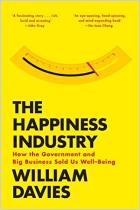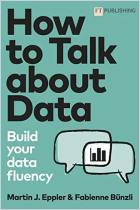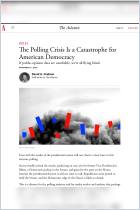加入 getAbstract 阅读摘要

加入 getAbstract 阅读摘要
William Davies
How Statistics Lost Their Power – and Why We Should Fear What Comes Next
The Guardian, 2017
看看什么内容?
Big data is replacing statistics, but at what cost?
Recommendation
Statistics were once the authority on facts, but society has grown increasingly wary of them, especially of their use in politics. Sociologist and political economist William Davies explains what led to statistics’ fall from grace. He considers statistics in the context of their history and offers an opinion on why big data analysis can’t replace the service statistics provide for democracy.
Summary
About the Author
Sociologist and political economist William Davies wrote The Limits of Neoliberalism and The Happiness Industry.


















Comment on this summary